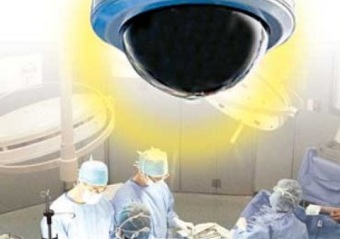Hospitals in South Korea could be required to place surveillance cameras in operating rooms after a series of medical accidents involving unqualified staff who stood in for surgeons.
If a parliament vote on the issue approves the move, it would see South Korea become the first developed country to require closed-circuit cameras to record surgical procedures.
Medical groups and hospitals have claimed the bill “undermines doctors” and would lead to a “collapse” of health care.
But pressure for change has grown after a case in 2016 in which surgeons at private clinics were accused of assigning nurses or unqualified doctors to perform procedures, sometimes with fatal results. Kwon Dae-hee, then a university junior, died of a haemorrhage in October 2016 after 49 days in a coma as a result of a jawline surgery in Seoul, which he did not tell his family about ahead of time, his mother Lee Na-geum said.
The 61-year-old has been holding a one-person protest in front of parliament since January 2018. She said her son was traumatised by bullying in high school for his prominent chin and he was determined to undergo the cosmetic surgery. She had reviewed the footage of more than seven hours of Kwon’s surgery over a thousand times and said she was able to prove that it was performed in part by an unqualified nursing assistant and an intern doctor, not by the chief plastic surgeon as promised.
This led to her son losing over 3.5 litres of blood and he died of excessive bleeding. With the video evidence she collected, Ms Na-geum sued the hospital and the head surgeon, who was later found guilty of involuntary manslaughter and sentenced to three years in prison.
Multiple attempts had been made to amend the Medical Services Act to require surveillance cameras, primarily to stop doctors from delegating surgeries to unlicensed personnel, an act which is subject to a maximum of five years in prison or a large fine.
The bill has been met with objections from doctors, hospitals and medical groups, including the 140,000-member Korean Medical Association (KMA), which claims video-monitoring will undermine trust in doctors, violate patient privacy and discourage doctors from taking risks to save lives








